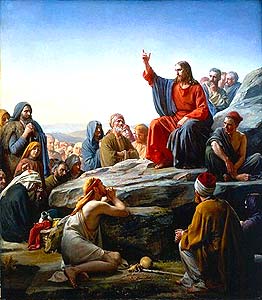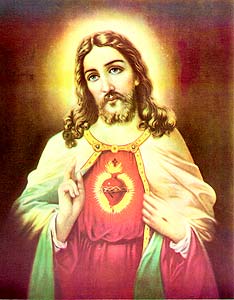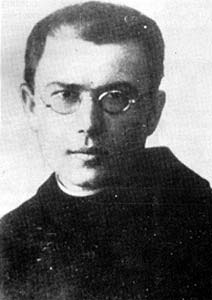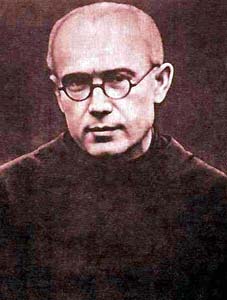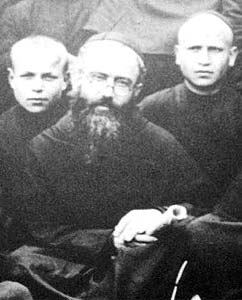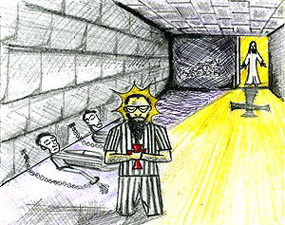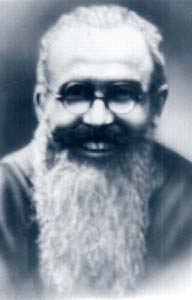 |
 |
 |
Volume
6 - Issue 12
DECEMBER - 2008 |
The Beatitudes are a series of eight blessings through which Jesus succinctly portrayed the character of a person who truly and powerfully walks the spiritual path to God. In these poetical phrases, Jesus laid down the golden path traversing which every man and woman, be it in Israel or Iceland, Africa or Australia, pauper or king maker, could envelope their self with divine light. It is these eight sublime tenets with which Jesus opened the Sermon on the Mount, the revolutionary discourse that shocked His listeners, who were used to the traditions of Judaism. In this first Sermon, Jesus gave a new and revolutionary dispensation of the path to God: He reinterpreted Mosaic Law, and in particular, the Ten Commandments; condemned the ‘good works’ of fasting, giving alms, and prayers when they are only done for show; expounded the Lord's Prayer; and denounced those who judge others before first judging themselves.The Beatitudes were His opening salvo - a torpedo of love to shake humanity awake from material values and a fixation on the world of the senses. Centuries have rolled by, but even today the Beatitudes surprise and tantalise us, they awaken and illumine us as they are all reversals of commonly held beliefs and attitudes. The powerful declarations embedded in them pull us away from earthly and worldly rewards and redirect us within, to the inner world of God’s grace and purity. More than two thousand years ago, when Jesus began His ministry among the Jewish people, the world was a dangerous place. The Roman occupiers were wholly in control and life was often harsh and brutal for the Jews. They longed for release from their problems and many prayed for the expected Messiah to come and save them, and usher in the Kingdom of Heaven. For many Jews, this new Kingdom would very naturally involve the overthrow of the Romans and a restoration of the rights, dignity and aspirations of the Jewish people. Of course, they would expect greater material gains as most of their wealth was being siphoned off as taxes to their Roman masters. However, Jesus’ first teachings to His people were not what any ordinary person would have expected. Jesus did not give the people what they wanted – He gave them what they needed; that is, if they had the eyes to see and ears to hear. He taught that “The Kingdom of heaven was within” and the Beatitudes are His testimonial to that fact, for they point to an inner living reality open to all. Scholars and seekers alike see the Beatitudes as a completely new life of the spirit, whose values are totally at odds with a worldly life, but if practiced, powerful enough to completely transform our attitudes, goals and lifestyle. By the time He delivered this powerful message, the compassionate Lord Jesus Christ, had already established Himself as a great spiritual teacher, orator and healer of the sick. Crowds were following Him from all around. Just before Jesus delivered the Beatitudes to His followers, the Bible records that:
The people had faith in Him. He was tall and robust, with fiery eyes that blazed a divine light. He had just withstood the temptations of the devil in the wilderness; and now, wholly sanctified and ascending into His full power He was ready to save His flock. And He used choice and chaste words to attract them. His pronouncements were piercing and He spoke only to teach and guide those around Him, those who looked up to Him. Already a few had become his pledged disciples, like Peter, Andrew, James and John. The people were ready to listen to His message – but could they assimilate it? Were they able to understand the profound and deep meaning that could change their lives? And in the same vein, are we, as we read His words afresh? Jesus opened His Sermon on the Mount with the most powerful directives ever given to man. As He taught His followers, there could be no doubt as to His stature, His authority and the divine origin of His wisdom. Here are those timeless assertions from the Divine, one by one, each one as pointed and powerful as the other.
As these first gifts from His divine lips were articulated, the world had to adjust to its fundamental understanding of the concept of transformation, for He was telling them, ‘My child, don’t rely on your ego; don’t let pride and vanity take hold. Be humble, be gentle, then God will bless you and you will be welcomed into God’s kingdom.’ Jesus was urging His listeners to become aware that by losing their ego, their pride, they can gain an eternal reward: the kingdom of heaven. Hence He exhorted them to be poor in spirit, bereft of worldly pride and assertiveness. The poor in spirit are completely empty of ego and entirely open to the Word of God. Like empty cups, God can fill them with humility and inner peace, which keeps them ever acting from the Will of God. A man who shines by way of being ‘poor in spirit’ will never put himself first – he will always put others’ welfare before his own. This divine virtue of humility is exemplified amply by the one of Christianity’s modern day Saints, St Maximilian Kolbe, whose extraordinary life of sacrifice stands out in the history of mankind.
From this unparalleled example we can understand how this virtue leads people to spend much time in prayer where they find all their strength coming from God – rather than the cleverness of the mind or the nourishment of the food. By living the lecture in its truest and literal sense, in his thought, word and deed, St. Kolbe rose above all divisions, including the racial divide. There were no Jews and non-Jews for him. All was one. In that state of inner unity, he experienced a state of equanimity and bliss otherwise unimaginable under his circumstances. The poor in spirit are indeed ever full of rejoicing and thanks to God, because they have overcome their ego, and rest in the presence of God. They have God’s protection, His smiling glance and have turned away from chasing the mirage of the world’s apparent rewards. Indeed they live in the ever present ‘kingdom of heaven’, which is the living presence of the Lord’s Grace. End of Part 1 Dear reader, how did you like this story? Did it inspire you in any way? Would you like more such stories focussed on the life and teachings of Jesus Christ and other such divine incarnations? Please write to us at h2h@radiosai.org with your name and country. We look forward to your feedback, comments and suggestions to help us serve you better. Thank you very much for your time. - Heart2Heart Team |
Vol 6 Issue 12 - DECEMBER 2008
|
Best viewed in Internet Explorer - 1024 x 768 resolution. |
DHTML Menu by Milonic |

